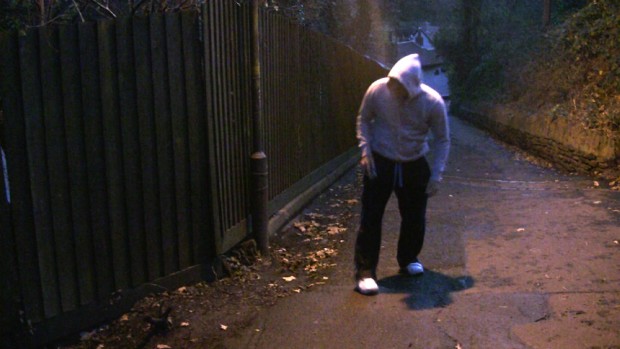
Regular readers know we harbor chronic objections to the behavior of the Brunswick School bureaucracy, specifically the School Board and Department administrators.
They systematically employ the successful strategy that more money is always needed, and always the solution, no matter what other realities, such as declining enrollment, may dominate the factual basis. And if you don’t agree with them, you ‘don’t care about THE CHILDREN.’
Nothing else is worthy of public airing or debate as to school policy. We wouldn’t say it, but we wouldn’t take offense if others concluded they really don’t know how to evaluate and improve school department performance by any other measure than how much they spend.
Unless you include the need to replace assets where due attention to basic maintenance has been ignored until such time as demolition and new construction is the ONLY realistic option. Don’t even get us started on PDT’s Svengali in such matters.
Nor on discussions of bathroom administration or school ‘climate’ evaluation. If we can find our lost muse, we hope to address these things in future posts.
Studying history is always informative, especially as it records the innovation of Super P – Department Superintendent Paul Perzanoski. How long has he been here? Seems like it must be 10 years or so by now. Our cherished memories of Jim Ashe seem at least that old.
Some years back….2010….to be specific, Super P put forth a public plan to place loose change jars around town in various business establishments so that guilt-ridden local taxpayers could empty their pockets of loose change to help lift the Department out of its constant state of abject underfunding. Read the first few posts at the link below to refresh your memory. (Be mindful of the reality that town leaders discourage such glimpses into recent history. They don’t help current efforts to increase taxes no matter what.)
http://othersideofbrunswick.blogspot.com/search?q=change+jars
We recall that at the time we submitted an op-ed to The Ostrich suggesting that such pan-handling on the part of a town department was unseemly, at the very least. And we made the same point in a brief radio spot on MPBN. All to no avail; though the effort ended. It would be presumptuous of us to think we had anything do do with that, but you’ve got to take your amusement where you can find it when it comes to fighting city hall.



Now comes word that Super P has evolved his thinking on innovative fund raising approaches to support government schools, which as you know, are always having their budgets cut. You do know that, don’t you? You’ve been told over and over that it’s true, so it must be, right? Here’s a snippet from the BSD web site:
Fund-Raising Project – Support Public Education
Superintendent Paul Perzanoski has announced a fund-raising project for the Brunswick School Department. In an effort to raise funds for the development of summer programs for students, the School Department is selling hooded sweatshirts, long-sleeve t-shirts, and t-shirts with the … Continue reading →
Posted on January 14, 2016
Back many, many years ago, we sometimes bought hooded sweat shirts because they protected us against chills in the air on morning jogs and such.
For more than two decades now, hooded sweat shirts, commonly called ‘hoodies,’ have evolved towards a completely different purpose: to hide one’s identity, or at the very least, create the image of one not to be messed with. Weather has nothing to do with it.
Don’t believe us? Be more attentive as you drive around town, and you’ll quickly notice there is a ‘hoodie demographic’ in our midst, and we doubt you’ll react positively to their ‘image.’ They are, to say the least, ‘all weather gear.’
For those living on an island, in both the literal and figurative sense, Hoodies may not evoke such reactions. So using them as a fund raising mechanism for government schools and ‘the children’ is entirely an innocent pursuit. Even if it does convey a certain cluelessness towards contemporary social practices.
But then, cluelessness is a standard part of school budget discussion, for the reasons we mentioned earlier and various others. The town council regularly stands on round heels in the deliberations, as they demonstrated in folding like cheap suits in the recent back and forth over a drop in the bucket. They fell for the same old con they always do. Or maybe they’re in on the game; only the shadow knows.
After years of watching entirely predictable behavior, cloaked in the rhetoric of ‘tough decisions’ and ‘concern about tax rates,’ we conclude that the majority are more interested in keeping their positions as masters of the local domain, and being beloved of the mommy mafia, than they are in managing the economic sustainability of the town enterprise, and guarding the interests of taxpayers overall.
A review of school spending shows their budget has increased by more than $4 million since the change jar idea hit the streets. And enrollment is down by more than 300 (over 10%) in the same time frame. We’re sure, however, that Rich ‘Numbers’ Ellis can demonstrate through slight of spreadsheet that these numbers portray a stark reduction in ‘school spending.’

We think Rich and the School Board’s time could be spent by coming up with more creative ‘back door’ approaches to squeezing discretionary dollars from local taxpayers above and beyond their always increasing tax levies. Why not pass an offering plate around the official table at the start of each council and school board meeting, for instance, as a symbolic way of ‘modeling’ the desired generosity on the part of the citizenry?
We’ll gladly count the take from each meeting, under the watchful eye of local constables, and report the results here.
And one of these days, maybe the board could try to figure out just what it means to measure school system performance, and that of the teaching corps, and use the results as a launch point from which to improve things.
Instead of using dollars as their only yardstick, and their only tool.
Doing so might demonstrate a commitment to ‘the children’ in a tangible way, and actually foster a culture of improvement.
Instead of a culture of more spending, which is all we can see from our vantage point.
No comments:
Post a Comment